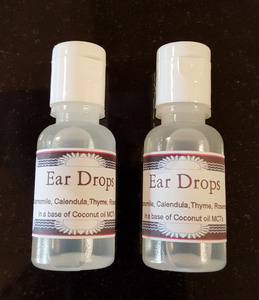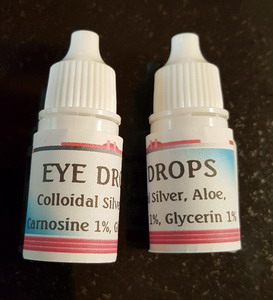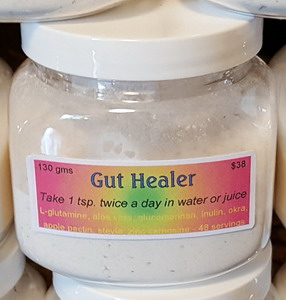| Welcome |
|
September 16, 2018
Magnesium
Hi ,

What is the most commonly deficient nutrient in the American diet? As you might guess from the title of the article, it is magnesium. As a rule Americans get most of the vitamins and minerals they need to prevent actual deficiency diseases like scurvy or beriberi due to the enrichment of common foods like flour, milk, and salt. This is not to say that we get what we need to be actually healthy, but enough to
avoid specific nutrient deficiency diseases. There is a huge gap between health and disease where most of us live. This is where we experience non-life threatening symptoms that make us miserable, but which medicine is not particularly interested in because they are busy saving lives.
Magnesium is absolutely vital for life, but most people have never even heard of hypomagnesia: insufficient dietary magnesium. Magnesium is essential in over three hundred physiologic functions in our body. It is necessary for protein synthesis, muscle and nerve function, energy production, bone formation, heart rhythm regulation, blood sugar and blood pressure control. But lets check out a partial list of symptoms associated with low magnesium levels and see if any of
them relate to you.
Fatigue, low energy
Cramps and spasms
Tremors
Weakness
Irritability
Anxiety or hyperexcitability
Apathy or confusion
Insomnia
Poor memory
Learning difficulties
Sensitivity to light and sound
Loss of appetite
Insulin resistance
Irregular or rapid heartbeat
Tingling or numbness
Nausea or vomiting
Migraines
Personality changes
Delirium, hallucinations
High blood pressure
Diabetes
Heart failure, coronary seizures
 So as you can see, the effects of magnesium are all across the board. This is because magnesium is essential in the energy formation pathways every one of our cells use. Magnesium and calcium balance each other in the control of muscular contractions and should be consumed in your diet in equal
quantities. This has become a problem with everyone taking calcium for their bones in that folks are getting too much calcium and not enough magnesium. Some partially responsible supplement companies combine calcium and magnesium in their products, but this fails because both of these minerals compete with each other for digestion in the gut resulting in only half of each actually being absorbed. So as you can see, the effects of magnesium are all across the board. This is because magnesium is essential in the energy formation pathways every one of our cells use. Magnesium and calcium balance each other in the control of muscular contractions and should be consumed in your diet in equal
quantities. This has become a problem with everyone taking calcium for their bones in that folks are getting too much calcium and not enough magnesium. Some partially responsible supplement companies combine calcium and magnesium in their products, but this fails because both of these minerals compete with each other for digestion in the gut resulting in only half of each actually being absorbed.
Calcium and magnesium have opposite effects on the nervous system. Calcium revs things up by promoting the excitement neurotransmitters, while magnesium calms things down by promoting the calm and relaxed neurotransmitters. This is similar to their effects on muscles.

Where do we get magnesium in the normal diet? Magnesium is the central component of chlorophyll, the molecule that makes plants green and allows them to produce plant material from sunlight, water, and air. It also is found in nuts, seeds, and dairy products. Unfortunately our soil is becoming depleted in magnesium. Compared to 100 years ago there is 60% less magnesium in the soil and in the food grown from this soil. We now have to supplement this nutrient
directly. Our food just does not contain all we need anymore. Magnesium is a macro-nutrient like calcium and should be in a 1:1 ratio with calcium – about 700 milligrams of each per day. Due to a translation error a long time ago, we got the mistaken impression that we should consume twice as much calcium as magnesium. Not so. Being a macro nutrient, where we need about 100 times as much as the vitamins like the B vitamins, it is hard to enrich our foods with
it without affecting their taste. So we have to supplement it.

Things that decrease our magnesium absorption also need to be considered. Certain drugs greatly decrease magnesium absorption. The most common drugs that do this are the stomach acid drugs called proton pump inhibitors. Certain foods like grains and certain plants that contain phytates and oxalates also bind up magnesium and stop its absorption. Glyphosate (Roundup) is a chelator that also binds magnesium and that is one more reason to eat only organic
foods. Chronic alcohol use also decreases magnesium uptake, as well as chronic stress and uncontrolled diabetes. Another consideration is that to be properly used in our body we need to be sure we are getting enough vitamin D and K2. Magnesium, calcium, vitamin D3, and Vitamin K2 all work synergistically together and need each other.

So what kind of magnesium should we take? Magnesium in its pure form is a highly reactive metal. It is used in flares and fireworks. In nutritional form magnesium is always bound to something else. What it is attached to determines how well absorbed it is and also affects what impact it has on us. For instance magnesium oxide, citrate, and sulfate are poorly absorbed and work as a laxative for our bowels. Magnesium carbonate functions as an
antacid. Magnesium lactate and chloride are only 12% magnesium, but better absorbed. Magnesium chloride is what I make my magnesium oil out of for skin absorption of the magnesium. Magnesium threonate is a form that is better absorbed into the brain for influencing brain chemistry while magnesium taurate has taurine in it which helps calm the body.
The best absorbed magnesium supplements are magnesium glycinate and malate. They are more expensive, but you get more ‘bang for your buck.’ I especially like the magnesium malate because of the malic acid bound to it. Malic acid is one of the critical limiting components in the Krebs cycle energy production pathway in every cell. By using magnesium malate, I get a double action of both the benefits of the magnesium plus the benefits of the malic
acid. This really shows up in significant energy production diseases like fibromyalgia and chronic fatigue syndrome. Malic acid is naturally found in apples and pears giving them a pleasant tart/sour taste.

I take a teaspoon of magnesium malate every day which provides me with about the 700 milligrams of magnesium I need. I have some in tablet form, but I prefer just adding the powder to my smoothie in the morning. It gives things a bit of a lemon-like flavor because of the sour effect it has. I could just add it to water with a touch of stevia for a lemonade flavored drink.
The bottom line: If you are not taking magnesium every day, then start doing so. It is the most common nutrient deficiency around. That means unless you are eating five pounds of organic green vegetables, seeds, and nuts every day, you are deficient. If you are under chronic stress, take stomach acid meds, eat grains, drink too much, or have diabetes, then you are deficient. If you have any of the symptoms above, then you are likely magnesium deficient.
Since I am writing this article, I thought I would make available some powdered magnesium malate like I take. A one month supply (30 level teaspoons) of 120 grams should meet your magnesium needs nicely with the added boost of the malic acid for more energy and should only cost $9. You could also purchase it on Amazon here in a larger size.
Take care,
David

New Hours:
This month I am turning 65, and in response to reaching this golden age I am giving myself more time to take care of myself each day. I will be trimming my hours back 10% and rearranging them into a more efficient schedule. Beginning on my birthday, Sept. 25th my new hours will be
Mon - Fri 10 to 3:30
We will be working straight thru lunch to accommodate as many patients as possible. Most of you have told me I can't retire, so that means I will have to invest more time into building my longevity. Thank you.
Ellen update:
 Play time! Ellen went out with her friend Jan yesterday for an art viewing and friend visiting while I stayed home and worked on the newsletter. I roll her out to Jan's car and load her folding transport chair into the car and off they go. While they were out they decided to try out a new Thai ice cream place - Icicles. A patient told me
Play time! Ellen went out with her friend Jan yesterday for an art viewing and friend visiting while I stayed home and worked on the newsletter. I roll her out to Jan's car and load her folding transport chair into the car and off they go. While they were out they decided to try out a new Thai ice cream place - Icicles. A patient told me  about it a couple weeks ago. The ice cream is made on the spot to order on a big frozen plate and rolled into paper-like rolls onto which you put various toppings. Ellen said it was delicious. about it a couple weeks ago. The ice cream is made on the spot to order on a big frozen plate and rolled into paper-like rolls onto which you put various toppings. Ellen said it was delicious.
|
| |
| |
| |
Intermittent fasting can override certain disease causing genetics
Everything in the body operates with intricate timing controlled by our circadian rhythm clock. Shift work and poor sleep habits are messing this up causing disease. Mouse studies are showing that restricting feeding to only an 8 to 10 hour window each day helps stop the triggering of genes that bring on these diseases.
Gene control
_____________________________________________
"The will to win, the desire to succeed, the urge to reach your full potential... these are the keys that will unlock the door to personal excellence."
~ Confucius
__________________________________
Gut bugs contribute to anxiety and depression 
Studies in mice are demonstrating that diet will directly affect our mood by how the foods feed different gut bacteria. Each food we eat preferentially grows specific bacteria and each bacteria has a different effect on our body and brain. In this study the effects of diet were eliminated by giving the mice antibiotics and the anxiety or depression could be transferred to germ free mice with a fecal transplant.
Gut bug moods
________________________
"Life is really simple, but we insist on making it complicated."
~ Confucius
_________________________________________________
Resistant starch decreases inflammation
Feeding subjects corn based resistant starch (Hi Maize 260) slashed their levels of the inflammation causing cytokine TNF alpha and lowered heart rate. Resistant starch is a type of starch that we don't digest well but various bacteria in our gut love to eat, so it is considered a prebiotic starch.
Resistant starch
_________________________________________
"It does not matter how slowly you go as long as you do not stop."
~ Confucius
_____________________________
Our address is 9725 Fair Oaks Blvd. suite A
Our hours are M - F 9 to 1 and M, Tu, & Th 3 to 6
Finding the new location is very easy. Coming from highway 50 up Sunrise Blvd, you turn left and go up a block. We are on the right hand side - the building just past the Subway Sandwich shop. If you are coming down Sunrise from the Mall area then just turn right on Fair Oaks Blvd and up a block on the right.
If you are coming from the Roseville area you could come down Sunrise Blvd, but that is a long trek. It is probably shorter time wise to come down Auburn Blvd - San Juan Ave like you have been for the Sunset office, but instead of turning left at Sunset, keep going straight 3 more lights to Fair Oaks Blvd and turn left. Go down 2 lights to New York Ave, go through the intersection, and immediately turn into the turn lane once the center
divider ends. We are on the left.
You are free to reprint this article in your newsletter as long as you include the following statement in the same size type and color:
"This article appears courtesy of Fair Oaks Health News, offering natural and healthy solutions for body, mind and soul. For a complimentary subscription,
visit http://www.fairoakshealth.com"
Referral doctor for when we are out of town: Jennifer Webb DC
Jennifer Webb DC
6216 Main St. suite C1
Orangevale
988-3441
|
| |
|
|
|
_______________
to check on old newsletters
_______________
About Dr. DeLapp
|
Dr. DeLapp has been a philosopher, non-force Chiropractor, medical intuitive, and health innovator for over 35 years. He began experimenting with medical intuition in 1972 while studying physics at UC Davis. In addition to physics he designed and completed an individual major in the philosophy and psychology of education. Shortly after he choose to pursue a career in the only
truly health oriented profession available at that time, Chiropractic. He graduated with honors in 1981 with his doctorate and opened a private practice.
Since that time he has continued his research into the effects of consciousness and learning on health.
He developed the Biomagnetic Retraining system for correcting movement abnormalities.
Since 1991 he has focused on developing a powerful system for uncovering and assisting the mind-body connection in health and personal growth. The in-depth coaching, guided by the subconscious direction from the body, is called Heartflow and the simpler mind-body retraining for health and unfoldment he has named Gracework. Both are available at Fair Oaks Health.
Fair Oaks Healing
& Arts Center
Staff
 Dr David DeLapp DC
Dr David DeLapp DC
Chiropractor
Ellen Flowers FGM
Spiritual Life CoachEnergetic Nutritionist
Health Care Coordinator
Susan Richardson
Office Manager
Front Desk
Sherry Herrera
Front Desk Person
Susan McDonald
Catherine Cummings
New Products
Purity Oil Spray
Pain Relief
Essentials
CBDs plus 9 essential oils

Ear Drops

Eye Drops

Super Concentrated
Fish oil

Gut Healer

Sinus Rinse
Powder

Balanced Salt
|
|

